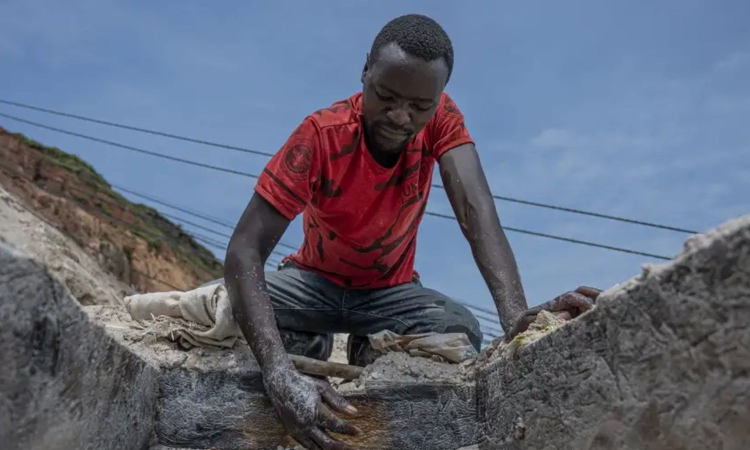Resource diplomacy: Africa’s critical mineral crossroads
Production and supply are concentrated in the global South. The Democratic Republic of Congo (DRC) produces nearly three-quarters of the world’s cobalt. Australia accounts for almost half of global lithium output, Chile for another quarter, and China for 18%.

• Critical minerals such as lithium, cobalt, nickel, copper, rare earth elements, and platinum group metals are essential for modern technologies. They underpin industries ranging from electronics and telecommunications to renewable energy, defence, and aerospace.
Global demand for these minerals is rising — and so is the competition for them.
Production and supply are concentrated in the global South. The Democratic Republic of Congo (DRC) produces nearly three-quarters of the world’s cobalt. Australia accounts for almost half of global lithium output, Chile for another quarter, and China for 18%.
China dominates the supply chain through massive investments, especially in Africa. It refines 90% of rare earth elements and graphite, and 60–70% of lithium and cobalt. The United States and European Union — long-standing African partners — have also adopted new policies to secure access to these resources.
The question is what African countries are doing to leverage this demand to drive their own development.
As development researchers, we address this in a special publication by the Indian Council of World Affairs on the rising significance of critical minerals in Africa. In another study, we examine how emerging resource diplomacy may reinforce Africa’s traditional role as a mere source of raw materials.
We recommend that African countries define their own strategies for benefiting from global competition. This includes developing policies that emphasise local value addition and position countries to gain beyond basic processing.
The scramble for Africa’s critical minerals underscores the urgency of governance reforms and regional cooperation to turn mineral wealth into sustainable prosperity — avoiding another “resource curse.”
The Emerging ‘New World Order'
A Chinese-led order is emerging to counter Western influence. Eastern and global South countries are asserting new alliances through BRICS and South–South cooperation. China has deepened its reach through the Belt and Road Initiative (BRI), launched in 2013 to connect continents by land and sea.
Since then, over 200 agreements have been signed with more than 150 countries and 30 international organisations. The BRI has expanded China’s access to resources, often in exchange for infrastructure linking mining regions to ports.
In Africa, China has invested heavily in mining and infrastructure, committing around US$4.5 billion to lithium projects in Zimbabwe, the DRC, Mali, and Namibia. Its strategic focus includes resource-rich nations such as the DRC, Zimbabwe, Zambia, South Africa, and Ghana.
Recently, China marked the 80th anniversary of the end of World War II with a military parade showcasing its strength. President Xi declared that China is “unstoppable.” With access to critical minerals, China’s influence — and its ability to advance military and technological capabilities — continues to grow.
Competition for Critical Minerals
Africa holds about 30% of the world’s critical mineral deposits, making it central to global geopolitics. The US and EU are working to secure supplies and reduce reliance on China.
The EU has strategic mineral partnerships with the DRC, Rwanda, Namibia, and Zambia. China has bilateral agreements with eleven African countries. The US has a trilateral agreement with the DRC and Zambia to support an integrated value chain for electric vehicle (EV) batteries. It also signed a “Minerals for Peace” deal with the DRC and Rwanda to help end decades of conflict in eastern Congo.
While African nations need partnerships to transform resources into prosperity, our research finds that these arrangements risk reinforcing Africa’s marginal role in global value chains. They often echo colonial patterns of dependency, extraction, and imbalance.
The Way Forward
The struggle between US-led and Chinese-led world orders will hinge on control over emerging technologies — from renewable energy and defence to aerospace and AI — all dependent on critical minerals. Access to and control of these supply chains will shape future global power.
Competition between the US and China will intensify. Yet African countries must remain neutral, pursuing only meaningful, mutually beneficial partnerships that advance their own development goals.
To do this, they must clearly define priorities in the extractives sector. Without coherent national strategies, external powers will continue to dictate the continent’s future, locking Africa into dependency instead of empowering it to capture real value from its mineral wealth.
Rather than competing for Africa’s resources, China, the US, and the EU should engage equitably with African countries to promote just, sustainable development across the continent.
The Conversation



